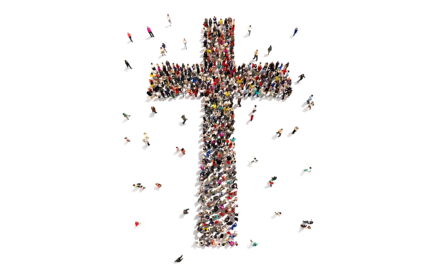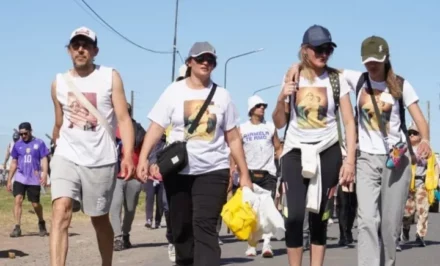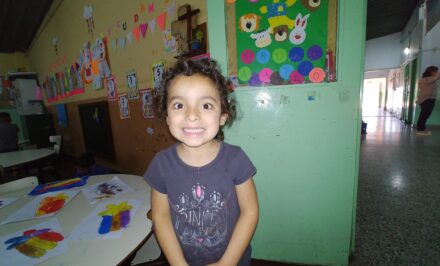 org. Every part of the Church, and many others outside of her – believers or non-believers – have received Pope Francis` clear and hope-filled words. They are also words that motivate us to assume the responsibility we all have to build a world in accordance to the Will of God, in the strength of the Spirit and through the way of Christ. Cardinals and bishops, priests, men and women religious, novices and seminarians, families, the youth and elderly, communities and institutes have received this challenge to go out “onto the street” to take – not a utopian hope – but concrete deeds in living evangelization projects to all men and women wherever they may be. And if they are on the “outskirts” then we have to go there, with all the risks and dangers it may include. He repeats to us constantly: I prefer an injured church, because she goes out to serve, to a Church that is sick because of her self-absorption. Testimony to this can be found in the section of Schoenstatt.org where on a weekly basis texts are selected which motivate us on our own pilgrimage toward the 2014 Jubilee. Undoubtedly, because we are the Church, these words are also directed to us. How happy must our Father not be with this missionary impetus which is given to us from the very heart of the Church! (Fr. José María García)
org. Every part of the Church, and many others outside of her – believers or non-believers – have received Pope Francis` clear and hope-filled words. They are also words that motivate us to assume the responsibility we all have to build a world in accordance to the Will of God, in the strength of the Spirit and through the way of Christ. Cardinals and bishops, priests, men and women religious, novices and seminarians, families, the youth and elderly, communities and institutes have received this challenge to go out “onto the street” to take – not a utopian hope – but concrete deeds in living evangelization projects to all men and women wherever they may be. And if they are on the “outskirts” then we have to go there, with all the risks and dangers it may include. He repeats to us constantly: I prefer an injured church, because she goes out to serve, to a Church that is sick because of her self-absorption. Testimony to this can be found in the section of Schoenstatt.org where on a weekly basis texts are selected which motivate us on our own pilgrimage toward the 2014 Jubilee. Undoubtedly, because we are the Church, these words are also directed to us. How happy must our Father not be with this missionary impetus which is given to us from the very heart of the Church! (Fr. José María García)
![]()
WEEK 4/2014

If we live our faith in daily life, our work becomes an opportunity to transmit the joy of being Christian.
The People of God is a disciple People — because it receives the faith — and a missionary People — because it transmits the faith. And this is what Baptism works in us: it gives us Grace and hands on the faith to us. All of us in the Church are disciples, and this we are forever, our whole lifelong; and we are all missionaries, each in the place the Lord has assigned to him or her. Everyone: the littlest one is also a missionary; and the one who seems to be the greatest is a disciple. But one of you might say: “Bishops are not disciples, Bishops know everything; the Pope knows everything, he is not a disciple”. No, the Bishops and the Pope must also be disciples, because if they are not disciples, they do no good. They cannot be missionaries, they cannot transmit the faith. We must all be disciples and missionaries.
General Audience, 15.1.
There exists an indissoluble bond between the mystical and the missionary dimension of the Christian vocation, both rooted in Baptism. “Upon receiving faith and Baptism, we Christians accept the action of the Holy Spirit who leads to confessing Jesus as Son of God and calling God ‘Abba’, Father…. All of us who are baptized … are called to live and transmit communion with the Trinity, for evangelization is a calling to participate in the communion of the Trinity” (Final Document of Aparecida, n. 157).
General Audience, 15.1.
The Lord’s relationship with his people is always a personal relationship. It is a person-to-person relationship. He is the Lord, and the people have names. Individuals have a name. It is not a dialogue between the Almighty and the masses. Rather, it is something “personal”. And among a people, each one has a place. This is why the Lord never speaks to the people as ‘the masses.’ He always speaks to them personally, calling each person by name. And he chooses personally. We can see this in the story of creation: the same Lord, who fashions man with an artist’s hands, gives him a name: ‘you will be called Adam’. And so began the relationship between God and the human person”. A relationship exists between God and us, we who are little. God is great and we are small. When God wants to choose people, also his people, he always chooses the little ones”.
Mass at Santa Marta, 21.1.
All of us, by virtue of our baptism, have been chosen by the Lord; we are all chosen. He has chosen us one by one. He has given us a name. And he looks upon us. There is a dialogue, because this is how the Lord loves. Although David was chosen and became king, he made mistakes. Perhaps he made many, many mistakes but the Bible relates two big mistakes. Yet what did David do? He humbled himself, he returned to his smallness and said: I am a sinner! He asked for forgiveness and did penance. I was thinking about these things, this dialogue between God and our smallness, and I asked: Where is Christian faithfulness to be found? Christian faithfulness, our faithfulness, is simply a matter of keeping watch over our smallness, which the Lord loves to see. May the Lord grant us, through the intercession of Our Lady – who joyfully sang to God, for he had looked upon her lowliness – the grace of keeping watch over our smallness in his sight.
Mass at Santa Marta, 21.1.
I am referring to a concern that ought to shape every political and economic decision, but which at times seems to be little more than an afterthought. Those working in these sectors have a precise responsibility towards others, particularly those who are most frail, weak and vulnerable. It is intolerable that thousands of people continue to die every day from hunger, even though substantial quantities of food are available, and often simply wasted. Likewise, we cannot but be moved by the many refugees seeking minimally dignified living conditions, who not only fail to find hospitality, but often, tragically, perish in moving from place to place. I know that these words are forceful, even dramatic, but they seek both to affirm and to challenge the ability of this assembly to make a difference. In fact, those who have demonstrated their aptitude for being innovative and for improving the lives of many people by their ingenuity and professional expertise can further contribute by putting their skills at the service of those who are still living in dire poverty. What is needed, then, is a renewed, profound and broadened sense of responsibility on the part of all. “Business is – in fact – a vocation, and a noble vocation, provided that those engaged in it see themselves challenged by a greater meaning in life” (Evangelii Gaudium, 203).
Message of Pope Francis to the Executive Chairman of the World Economic Forum on the Occasion of the Annual Meeting at Davos-Kloster (Switzerland)
I am convinced that from such an openness to the transcendent a new political and business mentality can take shape, one capable of guiding all economic and financial activity within the horizon of an ethical approach which is truly humane. The international business community can count on many men and women of great personal honesty and integrity, whose work is inspired and guided by high ideals of fairness, generosity and concern for the authentic development of the human family. I urge you to draw upon these great human and moral resources and to take up this challenge with determination and far-sightedness. Without ignoring, naturally, the specific scientific and professional requirements of every context, I ask you to ensure that humanity is served by wealth and not ruled by it.
Message of Pope Francis to the Executive Chairman of the World Economic Forum on the Occasion of the Annual Meeting at Davos-Kloster (Switzerland))
A normal life demands that a Christian be faithful to his choice and he must never sell it off to move towards a worldly uniformity. This was the people’s temptation and it is also our own. Often we forget God’s Word and what the Lord tells us to chase after the word that’s in fashion. The word of the soap operas is fashionable! Let’s take it: it’s more entertaining! Worldliness is more subtle and dangerous than apostasy — the sin of breaking with the Lord — because we are better able to see it for what it is. It is true that Christians should be normal, as people are normal, but there are some values that Christians cannot adopt for themselves. They must keep the Word of God which says: you are my son, you are chosen, I am with you, I walk with you. Christians should, therefore, resist the temptation of thinking that they are the victims of an inferiority complex, of not being normal. Temptation hardens the heart. And when the heart is hardened, then it is not open and God’s Word cannot enter. Worldliness softens the heart, but this is bad. A soft heart is never good. What is good is a heart that is open to God’s Word, a heart that receives it. Like Our Lady who pondered all these things in her heart, the Gospel says. Receive the Word of God so that you don’t distance yourself from being chosen. We ask, therefore, for the grace to overcome our egoism, the egoism of wanting to do as we please. We ask for the grace to overcome this and for the grace of spiritual docility — opening one’s heart to the Word of God — in order not to be like our brothers who closed their hearts because they distanced themselves from God and for a long time did not listen or understandd God’s Word. May the Lord give us the grace of a heart open to receive God’s word and to meditate on it always. From there may it lead to the true path.
Mass at Santa Marta, 17.01.
See all texts in “Francis for the Pilgrims 2014”
![]()
The aim of the pilgrimage
is the renewal of the covenant of love
as a missionary and unifying creative force,
i.e. internally the renewal of the Schoenstatt Family
and externally the shaping of covenant culture.













